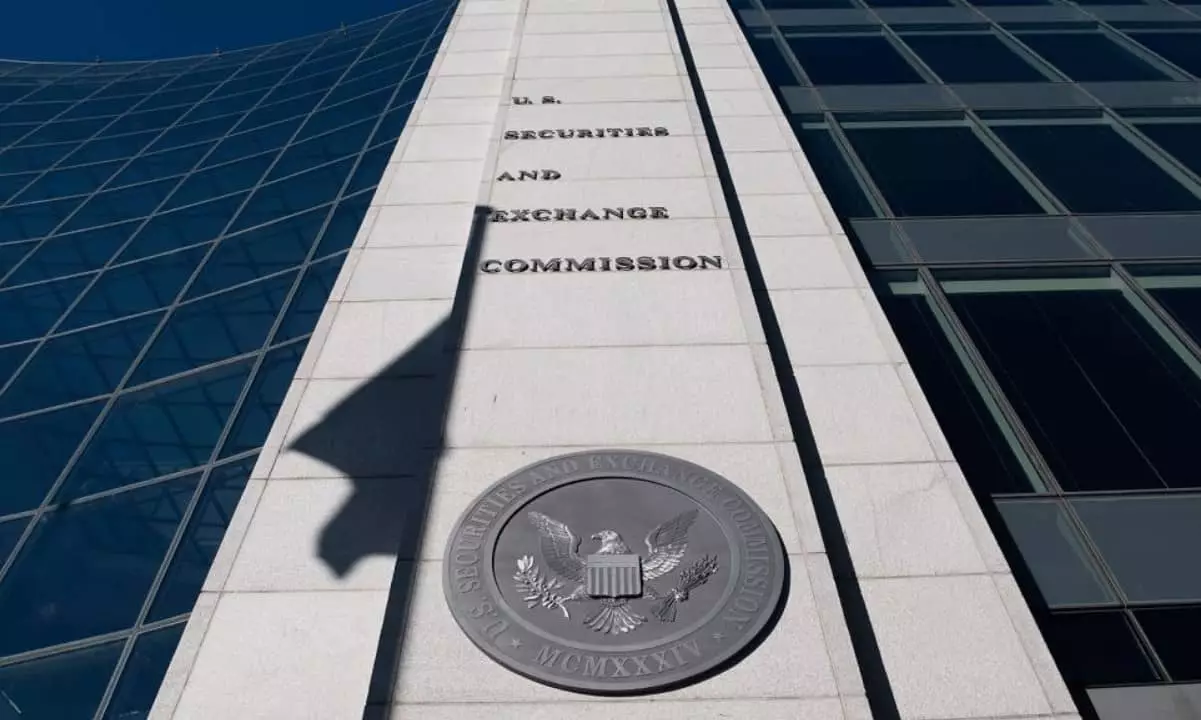In recent events, a faction of Republican lawmakers, led by Representative Patrick McHenry and Senator Cynthia Lummis, has voiced profound concerns regarding the Securities and Exchange Commission’s (SEC) newly established directives for regulating crypto custody. This discontent culminated in an open letter directed toward SEC Chair Gary Gensler, wherein these lawmakers have requested the immediate withdrawal of Staff Accounting Bulletin No. 121 (SAB 121). Their grievances pertain to both the processes surrounding the implementation of this guidance and the potential ramifications it holds for consumers and the cryptocurrency market at large.
The letter notably underscores a significant procedural misstep: the SEC’s decision to introduce SAB 121 without thorough consultations with pertinent regulatory bodies or adherence to the formal rulemaking processes integral to governance. This lack of engagement, combined with a perceived disregard for established procedures, has led to confusion within the industry. Moreover, it raises critical questions about consumer safety and the overall regulatory landscape for digital assets.
Specifically, SAB 121 mandates that custodians of digital assets must recognize liabilities while simultaneously maintaining offsets on their balance sheets that correspond to the fair market value of these cryptocurrencies. This stance marks a departure from traditional accounting protocols, potentially misrepresenting custodians’ official legal standing and economic responsibilities. Such discrepancies are seen to further endanger consumers by obscuring the true financial picture of these custodians.
The letter from McHenry and Lummis argues emphatically that rescinding SAB 121 is not only warranted but also well within the SEC’s jurisdiction. They pointed out that historical precedent exists for revisiting and modifying staff accounting bulletins, suggesting there is no reason for the SEC to maintain a stance that many see as problematic. They further referenced the Government Accountability Office’s (GAO) classification of SAB 121 as a “rule” under the Congressional Review Act, implying that it should have undergone formal notice and comment periods mandated by the Administrative Procedure Act (APA). Instead, the SEC purportedly sidestepped these established protocols by presenting the bulletin solely as staff guidance.
In addition to procedural concerns, the lawmakers highlighted troubling revelations regarding private consultations between SEC staff and a handful of financial institutions. Instances where inflationary rate exemptions were granted on a bespoke basis have raised alarms about fairness and transparency. This selective treatment prompted critical rhetoric from observers like Fox reporter Eleanor Terrett, who questioned why SEC accounting staff had the authority seemingly to determine which players succeed in the crypto custody sector while flouting official protocols.
Particularly noteworthy is BNY Mellon, identified as the inaugural bank awarded an exemption from the stricter regulations outlined in SAB 121. During a public inquiry in Wyoming, information surfaced concerning the SEC’s decision to allow this financial institution to circumvent more stringent aspects of the bulletin. Despite the overall burdensome requirements imposed by SAB 121, BNY Mellon recently received regulatory approval to accept cryptocurrency deposits, suggesting a disconnect between the SEC’s regulatory aspirations and the practical realities for market participants.
Critics of the SEC’s current regulatory framework argue that such selective and inconsistent applications of rule modifications undermine the foundational principles of investor protection. By failing to apply the same standards uniformly across various institutions, the SEC risks fostering an environment of uncertainty and inequity, where some firms are perceived as favored while others face more stringent compliance expectations.
Moreover, the implications of this uneven regulatory treatment could adversely affect the overall crypto market’s credibility, leading to skepticism among consumers regarding the integrity of custodians’ reporting practices. The prevailing inconsistency erodes trust, a crucial element needed to foster growth in an emerging sector like cryptocurrency.
As stakes rise within the ever-evolving cryptocurrency ecosystem, it becomes increasingly vital for regulatory bodies like the SEC to act judiciously. The call from Republican lawmakers to rescind SAB 121 serves as a salient reminder of the importance of transparent, equitable regulatory practices. If the SEC is to fulfill its mandate of protecting investors while allowing innovation to flourish, it must adopt a more collaborative approach that considers the perspectives of all stakeholders involved and adheres to the established rules of governance. Without such adjustments, the future of digital asset regulation may be fraught with challenges that could hinder progress in this dynamic arena.

